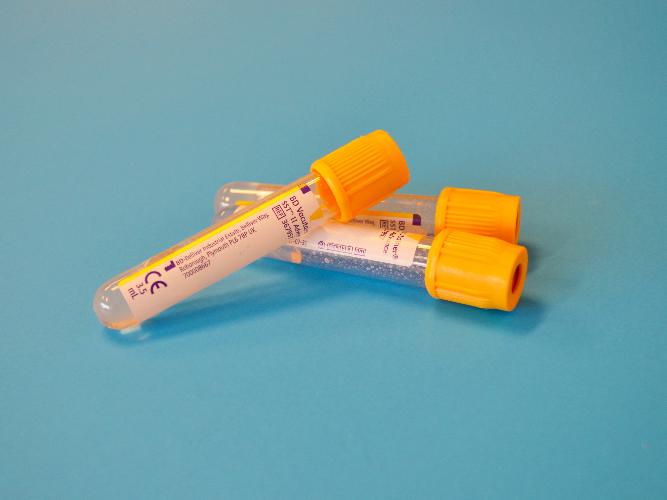Struggling to conceive is often a time of overwhelm, confusion and a lack of focus. This can be even more pronounced when no cause for infertility has been found. You may have been to the doctor, and had a full ‘comprehensive’ work up done- uterus looks fine through ultrasound, fallopian tubes also good, semen analysis tested and nil issues.
But, did you know that comprehensive ain’t always that comprehensive. I have been working as a fertility specialist Dietitian for several years and one common fact I see is couples being told that all is well and that there is no cause for their infertility. Upon further digging and requests for blood tests, it becomes apparent that unexplained can sometimes be explained.
This article is the first part of the series that will uncover the key tests that are often overlooked at your doctor’s practice which could be contributing to infertility. They will give you an insight into how you can improve your fertility and help give you specific goals to work toward, which may also help make you feel that you have more control over your situation. With that said, here are the additional investigations that you should consider if you have been struggling to conceive.
Vitamin D
Let’s talk about the sunshine vitamin, aka vitamin D. Vitamin D was once thought to be only important for healthy bones, but in the past decade, the research around vitamin D has exploded. We now know that there are vitamin D receptors around our body, including our reproductive tract. Studies have shown that women with higher levels of vitamin D are more likely to get pregnant, in addition to having a reduced risk of miscarriage. It is also important to note that even if you are not deficient in vitamin D, your levels may not be optimal for fertility. This is why it’s important to get it tested so that you are able to assess whether you are taking the correct supplement dose.
The benefits of optimal vitamin D levels also extend to male fertility. Studies have shown that sperm motility is improved when vitamin D levels are optimised, in addition to there being improved hormone production.
Complete thyroid panel
If you have been struggling to conceive or have had recurrent miscarriages, then getting a full thyroid screen is key. An underactive thyroid is commonly seen in women with ovulation disorders, unexplained infertility, recurrent miscarriages and premature ovarian failure. Some studies have also shown that even a mild reduction in thyroid activity can increase the risk of ovulatory infertility.
DNA fragmentation test
A conventional semen analysis looks at the shape of the sperm, how fast the sperm move and the sperm count. However, it does not look at the actual DNA quality of the sperm and ultimately, it is DNA quality that will influence conception, pregnancy and risk of miscarriage. Many of my clients who work with me come with normal semen analysis but further testing of DNA fragmentation shows poor sperm quality. Fortunately, sperm is very amenable to diet and lifestyle changes meaning that poor sperm quality can become good sperm quality within 3 months of being consistent with changes suggested. It is important to note that a DNA fragmentation test will not be covered by your GP and you will have to get it done privately.
Coeliac disease
If you have been diagnosed with unexplained infertility, have had recurrent miscarriages or you have been struggling for over 12 months to get pregnant, then both partners should be tested for coeliac disease.
This is an autoimmune disease which leads to your body’s own immune system reacting adversely to gluten- a protein component of wheat, barley and rye). As a result, your own immune system begins to destroy the lining of your gut- this lining is called the microvilli. One of the main jobs of the villi is to absorb nutrients- if you are unable to effectively absorb nutrients, then sperm and egg quality will be reduced leading to difficulties in conceiving and increasing the risk of miscarriage.
The symptoms of the coeliac disease can vary widely- although many people will present with gastrointestinal symptoms, others will have no symptoms at all. Some people may present with symptoms such as longstanding anaemia, hair loss, fatigue and skin disorders.
Endometriosis
When you think of endometriosis, heavy bleeding, painful periods and chronic and pelvic discomfort come to mind. However, there is a type of endometriosis called silent endometriosis. This is when a person has none of the most common symptoms of endometriosis. However, a symptom of endometriosis itself is infertility despite not having any pain. The problem is that endometriosis is often not picked up via ultrasound and the gold standard for diagnosis is via laparoscopic surgery- one of the many reasons it takes women years to get a diagnosis.
However, if you have been diagnosed with unexplained infertility but have corrected nutritional deficiencies, looked at the man’s fertility potential, have really had comprehensive investigations, then it is worth having a conversation with your GP to consider the pros and cons of investigating endometriosis.
Get started using the above suggested tests and if you feel that you need more help, an expert Fertility Dietitian can work with you to advocate for you and provide you with the support you need. I offer couple's package where I take a deepdive into both partner's diets, in addition to writing to your GP for all the additional investigations. If you would like to know more about this offer, click here for a FREE discovery call and let's get you on the road to massive success.

